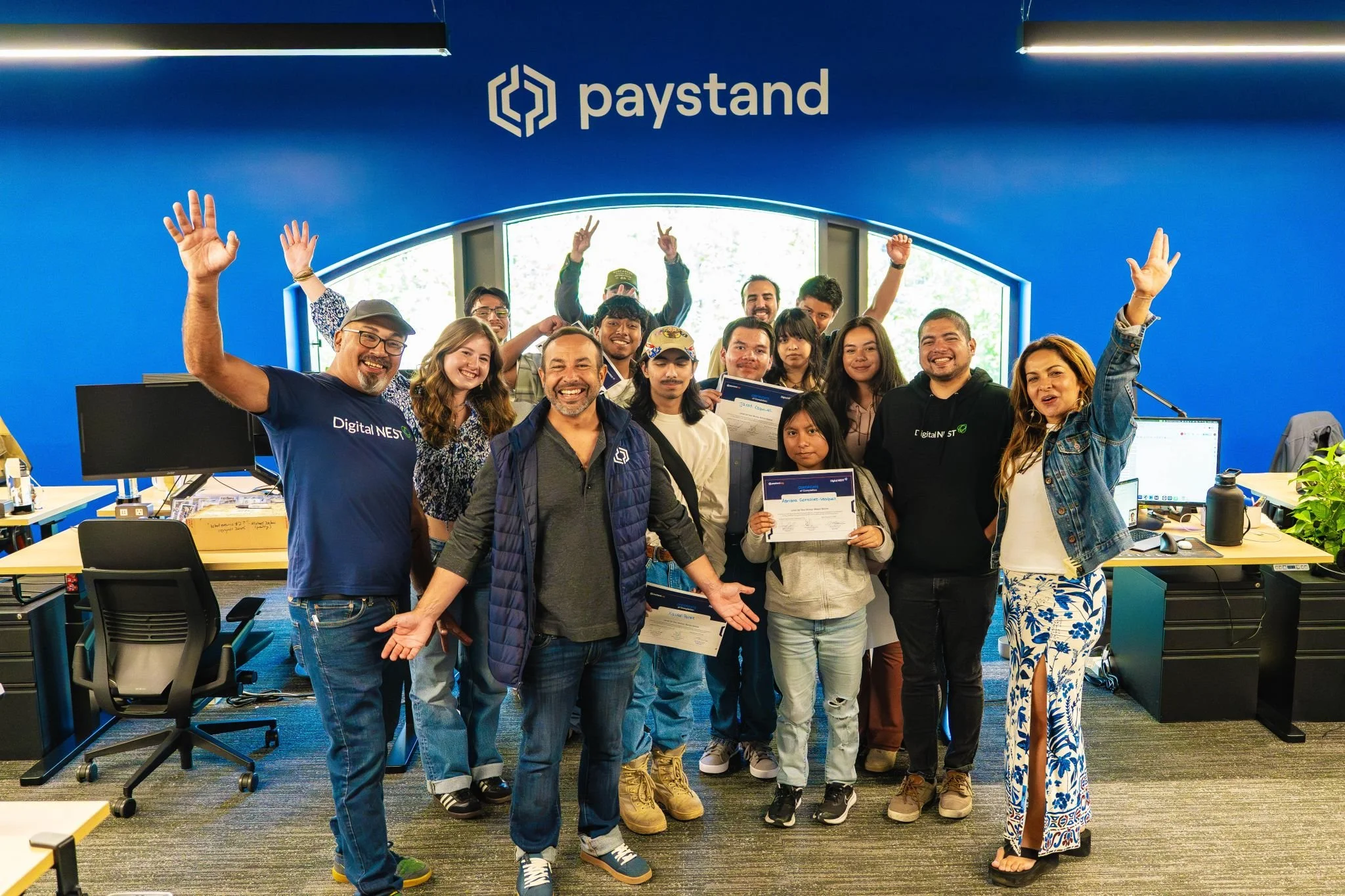Paystand & Digital NEST: Student Bitcoin Financial Literacy Program
The future of money just took a bold step forward in Watsonville, as Paystand.org and Digital NEST teamed up to launch the county’s first-ever Bitcoin-focused financial literacy program for youth. Held this summer, the course aimed not only to educate, but to inspire a new generation to think critically about the systems that shape their financial lives.
Under the leadership of Paystand’s Chief Impact Officer Alexandra Nájera and the guidance of intern Kaitlyn Prince, the program encouraged participants to wrestle with fundamental and forward-thinking questions: What is money, really? Why does the dollar lose value? What does it mean to own your financial future? Can Bitcoin offer a better path?
“This wasn’t just a summer class, it was a spark,” Nájera said. “These young people didn’t walk away with just certificates. They left with frameworks, confidence, and a new lens on financial systems.”
The course reflects a growing awareness that traditional financial education—often limited to budgeting and saving—must now address emerging technologies and alternative currencies. By focusing on Bitcoin and blockchain technology, the program offered both technical insights and philosophical discussions, helping students explore the potential and limitations of decentralized finance.
For Nájera, the launch carried a deeper personal significance. Previously, she played a key role in creating bizzNEST, a Digital NEST initiative that connects young professionals with real-world work experience. “Coming back through Bitcoin and Paystand felt like the beginning of real, lasting change,” she said. “It was a full-circle moment.”
The impact of the course is already being felt among participants, who now possess a more critical and empowered perspective on money. They learned not only how financial systems function, but also how to navigate them with agency—whether that means engaging with cryptocurrencies, questioning inflation, or envisioning more equitable systems for the future.
Paystand, a blockchain-enabled payments platform headquartered in Scotts Valley, has long championed the idea of a “zero-fee” financial system. Digital NEST, with hubs in Watsonville, Salinas, and beyond, has spent the past decade bridging opportunity gaps for young people in underserved communities. Together, their partnership in this program reflects a shared belief in technology as a force for economic empowerment.
With the pilot course complete, Nájera says the work is just beginning. Plans are underway to expand the curriculum, reach more students, and continue reshaping how the next generation understands—and influences—the future of money.


